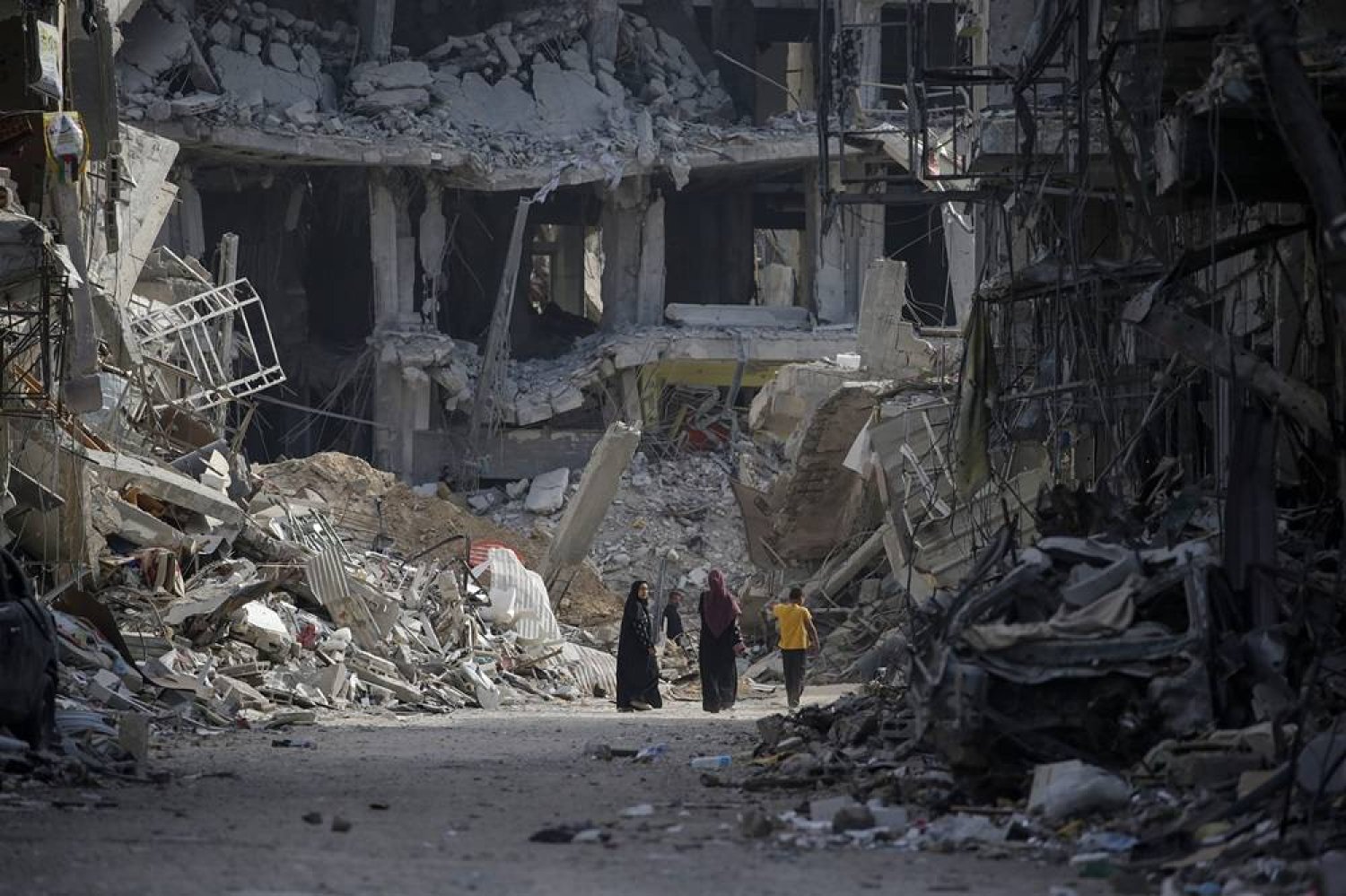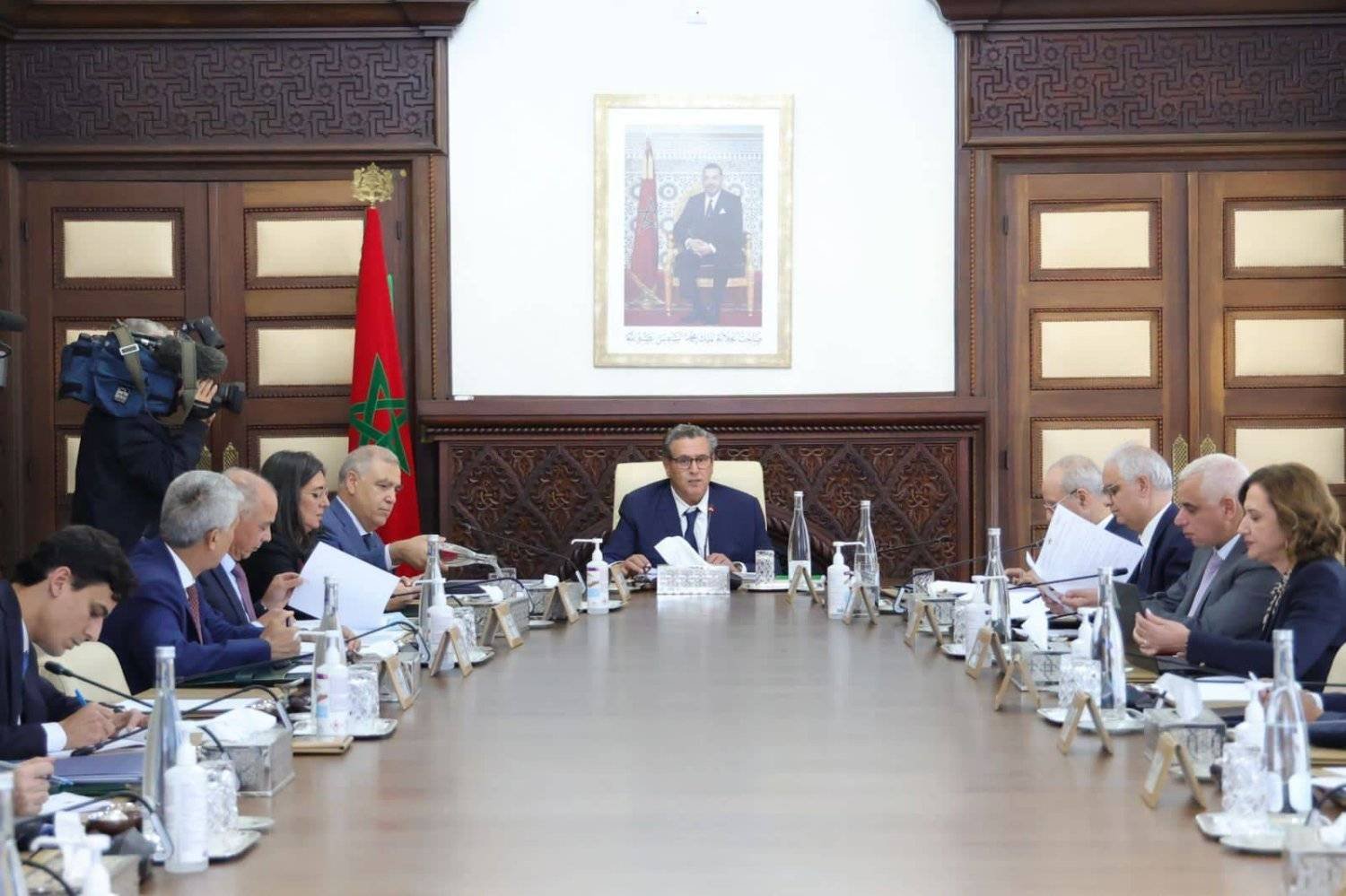Hundreds of anti-government protesters faced off against riot police outside the Tunisian parliament Tuesday as lawmakers inside confirmed a cabinet reshuffle amid growing unrest.
Mired in a political and economic crisis worsened by the Covid-19 pandemic, the North African country has been rocked by a wave of anger at a political class seen as obsessed with power struggles and disconnected from the suffering of ordinary people.
Prime Minister Hichem Mechichi told the assembly that by naming 11 new ministers to the interior, justice, health and other key portfolios, he aimed to create a "more effective" reform team.
He faced opposition from President Kais Saied, however, who said he was not consulted. Saied charged that one of the proposed ministers was involved in a corruption case and that three others were suspected of conflicts of interest.
Mechichi said the new cabinet would listen to the demands of the protesters, AFP reported.
Security forces have carried out mass arrests during more than a week of night-time riots and daytime protests against police repression, poverty, inequality and corruption.
Tunisia has often been praised as a rare success story for its democratic transition after the Arab Spring regional uprisings sparked by its 2011 revolution.
But many Tunisians are angered by a political class seen as disconnected from the suffering of the poor, amid high unemployment and spiralling prices.
"Poverty is growing, hunger is growing," read one sign carried by the protesters, while another demanded "Dignity and freedom for working-class neighborhoods".
The session came a day after protesters clashed with police in the town of Sbeitla, in Tunisia's marginalized center, after a young man hit by a tear gas canister last week died in hospital.
Some chanted slogans against the government and Ennahdha, the biggest party in parliament.
But police forces stopped demonstrators from gathering at the usual square in front of the parliament.
"The politicians are producing the same strategies that until now have only led to failure," said Yosra Frawes, head of the Tunisian Association of Democratic Women.
"They must change their governance model or step down."
Some lawmakers criticized the heavy security deployment around the assembly and called for further dialogue.
One complained of a vote held "under police siege" and said: "All that's missing is to vote under the threat of the baton."
Some members of the opposition held up pictures of the young man who was killed.
An AFP correspondent said there were clashes between police and demonstrators on Tuesday on the sidelines of his funeral.
Protests have been held in defiance of a coronavirus-related ban on gatherings and a night-time curfew recently extended until February 14.
The virus has killed more than 6,000 people in Tunisia and wreaked havoc on an already struggling economy.
Tunisia's politics have also been turbulent and seen a deepening rift between the prime minister and head of state.
President Saied -- an independent academic who has criticized parliamentary democracy -- has been seeking to reposition himself at the center of an unstable political scene.
The task of forming a government has become more difficult since elections in October 2019 resulted in a parliament split among myriad parties and fragile alliances.
Ennahdha came top in the polls but fell far short of a majority and eventually agreed to join a coalition government.
Mechichi's outgoing cabinet was sworn in in September after the previous executive, the second since the polls, resigned in July.
Mechichi had initially put together a team including civil servants and academics, some close to the president.
But he gradually moved away from Saied, and made changes with the support of Ennahdha, which is allied with the liberal Qalb Tounes party and Karama group.
Saied has threatened to block the swearing-in of some new ministers, a move that could aggravate animosities that have paralyzed political action.
















